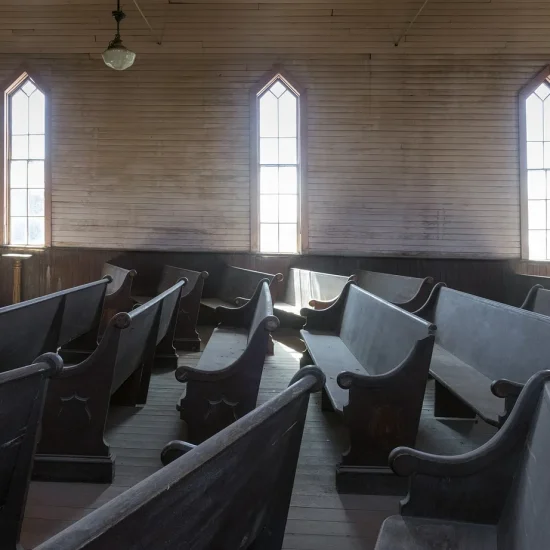
(RNS) — Laura Hepker, a 50-year-old single IT manager, she has felt like a unicorn in the evangelical Christian churches that she knew from a young age. “The structures of the church,” she said, “are very much designed for family.”
Data suggests Hepker is anything but a unicorn. Almost half of American adults are now single (including the widowed and divorced), and a thought-provoking Valentine’s Day-themed Pew Research Center study a few years ago suggested that the majority of unmarried men and women aren’t looking to date (and if they are, it’s complicated).

Photo by Pedro Lima/Unsplash/Creative Commons
Meanwhile, many churches suffering a decline in attendance tend to focus on traditional families. Studies have shown that parents choose churches with their children’s Christian formation in mind, and many pastors are charged with providing ministries that attract these parents to help their congregations survive in an increasingly secular culture.
The emphasis on family ministry, however, is stuck in the demographics of midcentury America, when houses of worship were thriving. “The church model that worked in 1960 doesn’t work anymore,” said Peter McGraw, a professor of marketing and psychology at the University of Colorado at Boulder and author of the recently published “Solo.”
In an environment where churches are hoping to attract and retain members, McGraw argues, “Why do anything that marginalizes a large group of your congregation?”
McGraw advises churches to look closely at their demographic. Singles, he said, are more prone to be involved in their communities. “If your goal is to build community, recognize the ways that singles are involved in building community. It’s not a dramatic shift, but it requires a shift for people to feel like they belong.”
That includes, he suggests, not only creating inclusive congregational groups, but details like making sure that promotional materials such as emails and newsletters target everyone.
Evangelical churches seem to be the most dedicated to pursuing families as members — or creating families out of their unpaired members.
Katelyn Lettich, a 28-year-old director of the evangelical Christian organization Young Life, said it seems as if the best the churches she has attended can offer young single members is dating opportunities. She advocates putting more unmarried people on church boards and planning committees to make sure singles’ voice are heard, but also to signal that they are as welcome as marrieds. “Invite single people into normal spaces,” said Lettich.
Younger singles aren’t the only ones looking to be included. Lindy Dimeo, 68, a retired crisis pregnancy center director, is a member of Blue Ridge Community Church, a small evangelical church near Charlottesville, Virginia. Dimeo and her husband played in the worship band together, but after he died, she took a few months off. “At the time it was hard living a single life in a family-oriented culture.”
But she said that it’s possible to grow into a churchgoer in one’s own right. Almost 20 years after her husband’s death, Dimeo said: “It would be nice to have somebody special, but it doesn’t impact my life at church anymore. My church is a very close community.”
Mainline Protestant churches, while perhaps less focused on the theology of family, also have room for improvement, said the Rev. Jennifer Schultz, pastor of Bethlehem Lutheran Church in Los Alamitos, California. Schultz is divorced and said her congregation, largely retired adults, has never known her as anything but single. It has never been an issue, she said: “We provide a space for single people, but don’t dwell on it, and don’t make them feel any different.”
But Schultz believes Christian communities are playing catch-up when it comes to welcoming singles, whether young adults, widowed or divorced. “One of the gifts of the church is that it has the potential to be a community for a variety of people. But I do think maybe we’re kind of behind the ball on that.”
McGraw suggests congregations reevaluate their tactics to redefine “family” to include broader feelings of community.
Until moving to a new church a few months ago, Kenny Champagne, 39, ran a large young adult ministry at a multicampus congregation in northern Virginia. Most of his charges, who ranged in age from early 20s to upper 30s, were single, he said, but he added, “I don’t think any of them got involved in the ministry with the idea of looking for a significant other.”
One of the primary aims of the group was nurturing friendships and a sense of community, he said, instead of trying to pair them up.
There are signs that some churches are intentionally forming with all types of members in mind. Recently, Hepker found The Table, an Episcopal congregation in Indianapolis that she described as “one of the more relaxed and accepting churches I have ever attended.” At The Table, a multigenerational congregation, “you’re just accepted for being a person, and not for your marital or relationship status,” she said.
Nathan Baker, 33, another evangelical who found his way to The Table after a period of “deconstructing” his faith, said he grew up with the expectation that a full life would involve marriage and a “godly family.”
Now on the vestry at The Table, he said single people are part of the fabric of the social and discipleship groups. “While God intended us to be in relationship with other people,” said Baker, “the pinnacle experience of that isn’t marriage, it’s vulnerable community life together.”
Lettich said that, more than being OK, singlehood ought to be seen as “a gift.”
“There is something very cool about this time of life,” she added. “I can truly invest in God and the people around me. I’m actually content. I’m not just pining for my next relationship.”
While many people don’t take her at her word, she said, “I think the church is coming around to the idea that single people hold value. They’re not just waiting for marriage, and they don’t have to be waiting for marriage to be a pillar in the church or to be treated as an equal partner, in ministry or in life.”
For those concerned Christians who ask uncoupled friends why they are still single, Lettich has a pithy riposte: “The Bible says not one thing about dating.”






